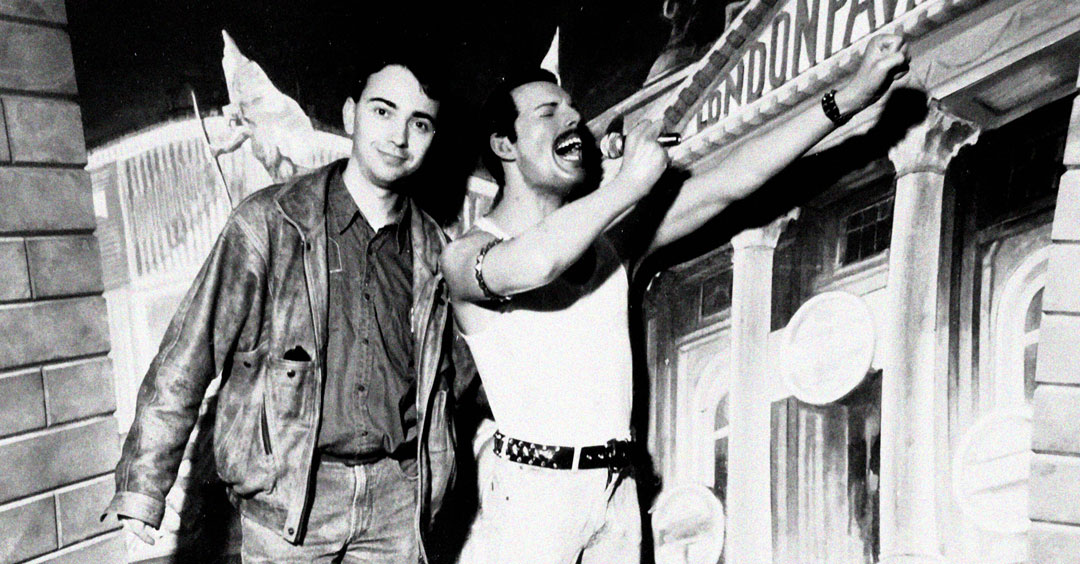
Much has been written about Bohemian Rhapsody and its factual shortcomings but be that as it (Brian) may, there is much to endear this film to those of us who enjoy and appreciate succulent moments of reflection and emotional depth.
One of the first things that struck me about this movie was its willingness to embrace silence.
There are a number of points in the movie in which we experience extended moments of silence, something modern directors and movie moguls seems to be scared of, in favour of cramming every three seconds with noise and action.
As Claude Debussy originally said, music is the space between the notes, and just like Queen’s bold comfort in embracing silence and changes in pitch and style, so, too, this movie employs such positions to great effect.
It struck me, while watching this film, that the reason Queen attracted such large crowds and has endured is because their music mapped the range of human emotion and disposition. I can’t think of any song by Depeche Mode, Bananarama, or other pop bands of the time having the emotional calibre to bring someone to tears.
So much pop music is disposable and has its place as such, but rare acts like Queen have the ability to grab your attention by the ears, and hold your head still while your heart cavorts around its chamber.
This is something that needs a big heart and, possibly, and unleashed ego to achieve.
How do we solve a problem like people who feel called to perform? Hint: I don’t think it’s a problem, I was paraphrasing The Sound Of Music for some unknown reason.
I was born to perform: Insights from Bohemian Rhapsody
A recurring theme in this moving is Freddie’s refrain that he was born to do “this”.
As I embark on my stand up comedy career, and gradually peep behind the curtain and see that it is not as mysterious as it seems from the audience, I empathise with Freddie and the lure of seeking that moment in the crowd.
Whether the audience loves you or not (and we all want them to love us), there is no other place for some of us than out the front and on the stage.
What does this do to our lives? Well, it’s complicated.
When one audience is conquered, it no longer satisfies. There is a thirst to find the next challenge.
And this means people afflicted by the same germ as Freddie was, those of us wanting to “break free” (from something, from now, from here) will never really know true peace and happiness and, even when we do, will never feel able to relax into into it because we see everything as fleeting.
There is truth to this, of course, but most humans are numb to it or have found ways to numb themselves to it through TV, film, books, jobs, hobbies, and, ironically, music and the arts.
Are there creators and consumers of art?
I don’t think it is as simple as that.
We can ALL be creators and we should create as much as possible.
But, as Gretel Killeen commented recently, “we live in a time when everyone thinks they’re creative. Oh yes, indeedy-do, we’re all just three macramé classes away from Michelangelo!”
Gretel was making a strong point about the divide between those who throw their lot into the arts and those who nibble at the edges with inflated visions of grandueur.
What Bohemian Rhapsody showed in it its story (whether or not it was true, the story remains) is that someone who listens to an inner voice urging them on and who ignores nay sayers, at least takes a chance to risk their hand and it’s funny how fortune favours the brave (much of the time).
One thing I have noticed, from my lowly soap box, is that I have taken a few steps (enabled by experienced guides around me) to create my own reality (of being a stand up comedian) and that it is all make believe while actually creating laughter among audiences. It is an exquisite paradox.
The artist has the sabotaging voice on the shoulder screaming “you are fake”, while the audience doesn’t care about that and seems to be happy to applaud “the other” for getting up there and having a go.
There are exceptions to all these generalisations but, for all its warts, Bohemian Rhapsody is a superb story for divining whether or not there is the spirit of a performer trapped inside you. Do you will Freddie on and urge him to go full throttle towards the cliff edge, or do you counsel him to dabble but stay safe?
Your inner dialogue will hold the key to answering those questions.
All the while, the show must go on. Your biggest question is, will you seek the stage?
